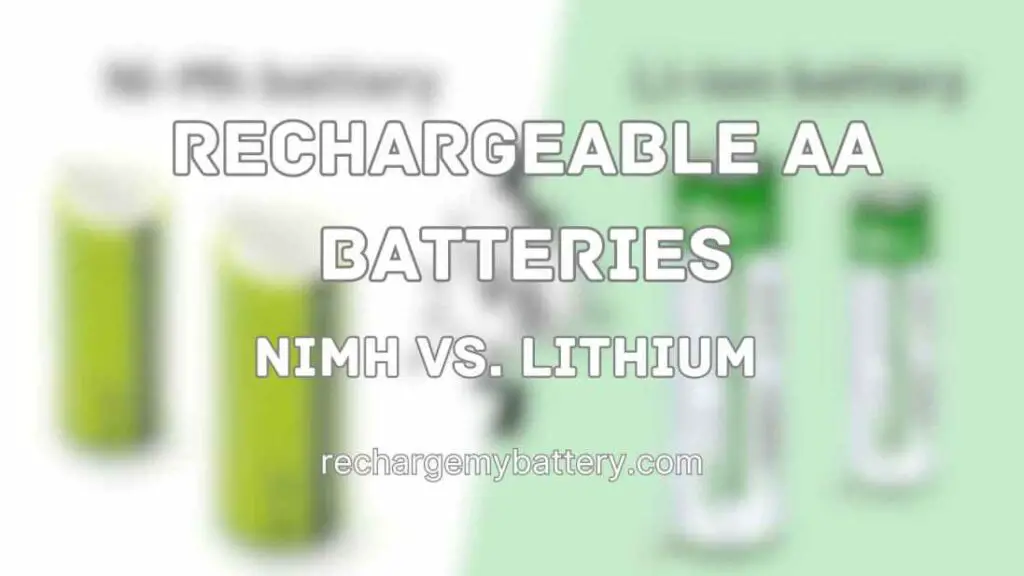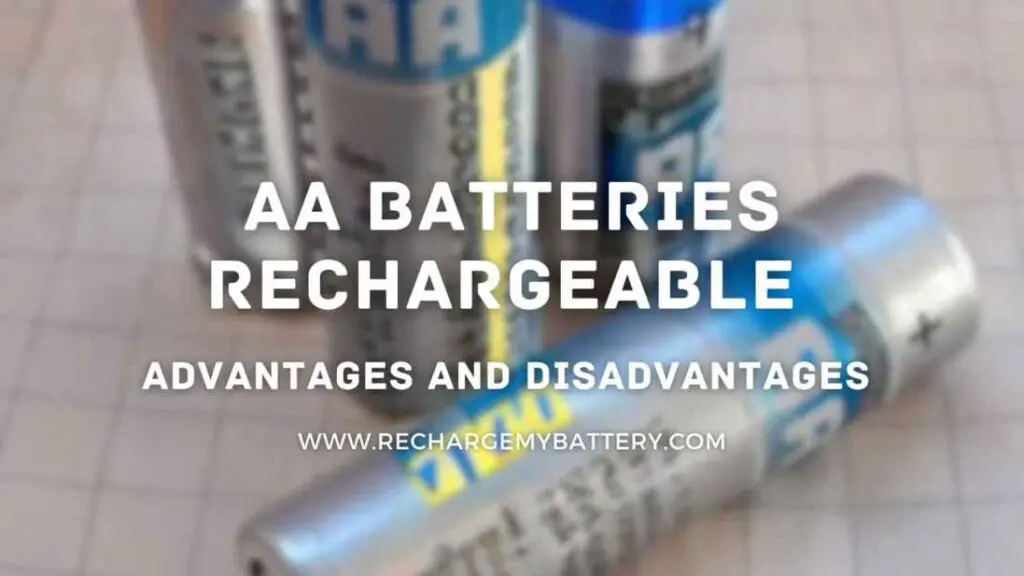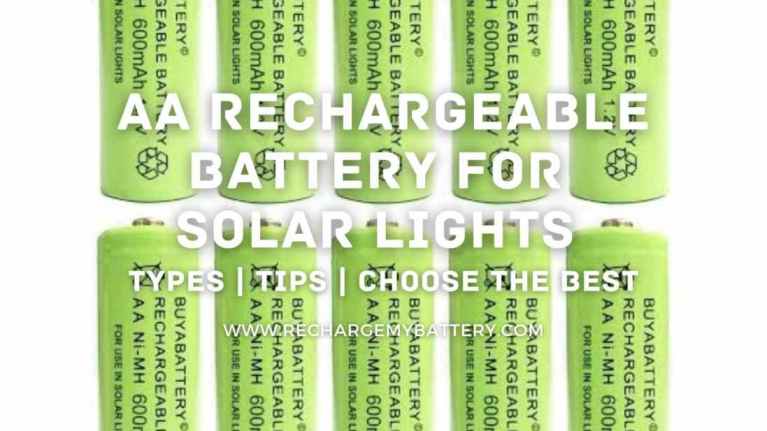In this article, we will explore the differences between NiMH and Lithium rechargeable AA batteries, their advantages and disadvantages, and factors to consider when choosing the right option for your needs.
Introduction
Batteries are an essential component of everyday life, powering our smartphones, cameras, remote controls, and countless other devices. Rechargeable batteries offer a convenient and eco-friendly alternative to traditional disposable batteries, eliminating the need for constant replacement and reducing waste. NiMH and Lithium rechargeable AA batteries are two popular options that provide longer life cycles and increased performance.
Understanding Rechargeable AA Batteries
Rechargeable AA batteries are designed to be reused multiple times, allowing you to recharge them once they are depleted. Unlike disposable batteries, which are discarded after a single use, rechargeable batteries can be recharged and used for hundreds or even thousands of cycles, saving you money in the long run and reducing environmental impact.
Types of Rechargeable AA Batteries
Nickel-Metal Hydride (NiMH) Rechargeable AA Batteries
NiMH batteries have been widely used as a reliable and cost-effective option for many electronic devices. They offer a good balance between capacity and affordability, making them suitable for various applications. NiMH batteries are available in different capacities, typically ranging from 1,200mAh to 3,500mAh, allowing you to choose the appropriate power level for your specific needs.
Lithium Rechargeable AA Batteries
Lithium rechargeable AA batteries are a newer and more advanced option. They provide higher energy density, meaning they can store more power in a smaller size. Lithium batteries offer impressive performance, with higher capacity and longer life cycles compared to NiMH batteries. However, they are generally more expensive than NiMH batteries.
Advantages of NiMH Rechargeable AA Batteries
NiMH batteries have several advantages that make them a popular choice among consumers:
- Affordability: NiMH batteries are more affordable compared to lithium batteries, making them a cost-effective option for many users.
- Widely Available: NiMH batteries are readily available in stores and online, making it easy to find replacements or additional batteries when needed.
- Compatibility: NiMH batteries can be used in a wide range of devices, including toys, flashlights, cameras, and more, offering versatility and convenience.
- Lower Environmental Impact: By using rechargeable batteries like NiMH, you contribute to reducing battery waste and environmental pollution.
Advantages of Lithium Rechargeable AA Batteries
Lithium rechargeable AA batteries offer several advantages over NiMH batteries:
- Higher Capacity: Lithium batteries typically have a higher capacity, allowing devices to run longer between charges.
- Lightweight and Compact: Lithium batteries are lighter and more compact than NiMH batteries, making them ideal for portable devices.
- Longer Shelf Life: Lithium batteries have a longer shelf life and self-discharge at a slower rate compared to NiMH batteries, ensuring they retain their charge for a more extended period when not in use.
- Fast Charging: Lithium batteries can be charged more quickly than NiMH batteries, providing convenience when you need to recharge your devices promptly.
Disadvantages of NiMH Rechargeable AA Batteries
Despite their advantages, NiMH batteries also have some limitations:
- Lower Energy Density: NiMH batteries have a lower energy density compared to lithium batteries, meaning they store less energy in the same physical size.
- Self-Discharge Rate: NiMH batteries tend to self-discharge at a faster rate than lithium batteries, so they may lose their charge over time, even when not in use.
- Memory Effect: NiMH batteries can develop a memory effect if not fully discharged before recharging, which may reduce their overall capacity.
Disadvantages of Lithium Rechargeable AA Batteries
Lithium batteries also have a few drawbacks:
- Higher Cost: Lithium batteries are generally more expensive than NiMH batteries, which can be a consideration for budget-conscious users.
- Limited Compatibility: Some devices may not be compatible with lithium batteries due to specific voltage requirements. It’s essential to check compatibility before using lithium batteries in such devices.
- Safety Concerns: Lithium batteries are more prone to overheating and potential safety hazards if mishandled or damaged.
Comparison: NiMH vs. Lithium Rechargeable AA Batteries
When deciding between NiMH and Lithium rechargeable AA batteries, it’s important to consider the following factors:
- Capacity and Runtime: Lithium batteries offer higher capacity and longer runtime compared to NiMH batteries.
- Cost: NiMH batteries are more affordable, while lithium batteries are pricier but offer better performance.
- Compatibility: NiMH batteries are generally compatible with a wide range of devices, while lithium batteries may have specific compatibility requirements.
- Weight and Size: Lithium batteries are lighter and more compact, making them ideal for portable devices.
- Charging Time: Lithium batteries can be charged more quickly than NiMH batteries.
Factors to Consider When Choosing Rechargeable AA Batteries
When selecting rechargeable AA batteries, keep the following factors in mind:
- Device Compatibility: Ensure that the batteries are compatible with the devices you intend to use them in.
- Capacity: Consider the capacity needed to power your devices efficiently and for extended periods.
- Charging Options: Check the charging options available for the batteries and choose a compatible charger.
- Longevity: Evaluate the expected lifespan of the batteries and their ability to hold a charge over time.
Applications and Uses of Rechargeable AA Batteries
Rechargeable AA batteries find applications in various devices, such as:
- Cameras
- Flashlights
- Remote controls
- Portable audio devices
- Wireless computer peripherals
- Children’s toys
- Game controllers
- Portable gaming devices
- Portable medical devices
- Portable power banks
Tips for Proper Usage and Maintenance
To ensure optimal performance and longevity of your rechargeable AA batteries, consider the following tips:
- Proper Charging: Use a compatible charger and follow the manufacturer’s instructions for charging the batteries. Avoid overcharging or undercharging.
- Storage: If you plan to store the batteries for an extended period, ensure they are partially charged and store them in a cool, dry place away from direct sunlight.
- Avoid Extreme Temperatures: Avoid exposing the batteries to extreme temperatures, as it can affect their performance and lifespan.
- Avoid Mixing Batteries: It is recommended not to mix different battery types or brands in the same device or battery pack.
- Dispose of Properly: When the batteries reach the end of their lifespan, recycle them at designated recycling centers or follow local regulations for safe disposal.
Popular Brands and Models
Several reputable brands offer high-quality rechargeable AA batteries. Some popular options include:
- Eneloop: Known for their long-lasting power and low self-discharge rate, Eneloop batteries are a popular choice among consumers.
- Duracell: Duracell offers rechargeable AA batteries that provide reliable performance and are widely available.
- Energizer: Energizer’s rechargeable AA batteries are known for their durability and high capacity.
- Panasonic: Panasonic offers NiMH rechargeable AA batteries with various capacities to suit different needs.
Sustainability and Environmental Impact
Using rechargeable AA batteries contributes to a more sustainable and eco-friendly approach to power consumption. By reducing the reliance on disposable batteries, you help minimize battery waste and its impact on the environment. Rechargeable batteries also require fewer resources and energy for production compared to disposable batteries.
Rechargeable AA batteries can be recharged and used multiple times, significantly reducing the number of batteries that end up in landfills. Additionally, many rechargeable batteries are recyclable, ensuring that valuable resources can be recovered and reused.
Conclusion
When choosing between NiMH and Lithium rechargeable AA batteries, it’s crucial to consider factors such as capacity, cost, compatibility, and usage requirements. NiMH batteries are affordable, widely available, and suitable for various devices, while Lithium batteries offer higher capacity and compactness. Understanding your specific needs and weighing the advantages and disadvantages of each type will help you make an informed decision.
Investing in rechargeable AA batteries not only saves you money in the long run but also contributes to a greener and more sustainable future by reducing battery waste. Make sure to follow proper usage and maintenance practices to maximize the lifespan and performance of your rechargeable AA batteries.
Thank you for reading it.


